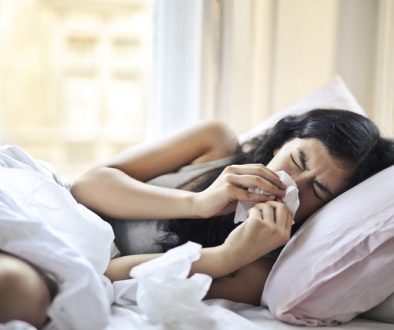Meningococcal disease? What’s that? What’s it got to do with me?
Meningococcal disease is rare but serious bacterial infection (not to be confused with the viral infection that can cause viral meningitis) that occasionally infects college students and others living in relatively isolated, confined communities.
What is meningococcal disease?
The infection caused by an organism called meningococcus is found in the nasal and oral secretions. This organism can be transmitted through close personal contact such as:
- Sharing drinking utensils (glass, bottle, can, jug, spigot, or straw)
- Sharing eating utensils
- Sharing lipstick or chap stick
- Sharing cigarettes, cigars, or pipes
- Sneezing or coughing on someone
- Kissing on the lips
Most people who become infected simply carry the organism harmlessly, without illness, and eliminate it from the nose and throat within a short time by developing natural immunity. At any given time, up to 10% of the normal population may be found carrying meningoccous without illness or symptoms.
Vary rarely, an individual may develop an illness with signs and symptoms of fever, headache, and stiff neck, sometimes with a rash or vomiting, and sometimes with lethargy or change in consciousness. These symptoms, or any worsening illness accompanied by fever, should prompt immediate medical evaluation.
What can be done to prevent meningococcal disease?
- Avoid contact with the nasal and oral secretions of others
- Wash your hands frequently
- Avoid factors known to compromise the immune system: heavy consumption of alcohol*, lack of sleep, and excessive stress (*Excessive alcohol consumption is believed by some health authorities to increase susceptibility to meningococcal disease.)
The American College Health Association strongly recommends that all college students under the age of 30 consider getting vaccinated against meningococcal disease.



